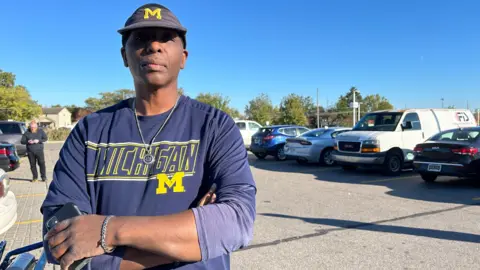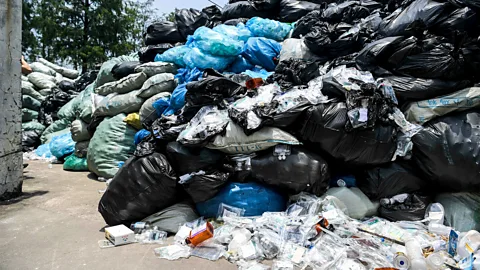General Hospital Spoilers Monday, July 10: A Big Idea, Bad News, Gunshots
 General Hospital spoilers and updates for Monday, July 10 tease a big idea, bad news, and gunshots! Kristina Corinthos-Davis (Kate Mansi) has a big idea, Dex Heller (Evan Hofer) gets bad news, and Dante Falconeri (Dominic Zamprogna) tries to hold off a sniper.
General Hospital spoilers and updates for Monday, July 10 tease a big idea, bad news, and gunshots! Kristina Corinthos-Davis (Kate Mansi) has a big idea, Dex Heller (Evan Hofer) gets bad news, and Dante Falconeri (Dominic Zamprogna) tries to hold off a sniper.
General Hospital Spoilers – Josslyn Jacks Catches Up With Trina Robinson
It looks like Josslyn Jacks (Eden McCoy) and Trina Robinson (Tabyana Ali) might be in the Spencer home back yard, as they talk about Dex Heller (Evan Hofer).
Josslyn is probably referring to Spencer Cassadine (Nicholas Alexander Chavez) when she tells Trina “his bad impression about Dex is really about me.”
Josslyn is obviously referring to her unfair move of starting an affair with Dex before breaking up with Cameron Webber (William Lipton).
Spencer knew about it and how badly Cameron was hurt by Josslyn’s infidelity, a friendship since childhood was actually destroyed over it. Elsewhere, Spencer’s got other issues to deal with.
GH Spoilers – Big Brother Daddy Duty
Spencer’s over at General Hospital arguing with Esmé Prince (Avery Kristen Pohl) over his “big brother daddy duty.” Esmé appears to be accusing him of non-cooperation concerning their “co-parenting” of Ace Prince Cassadine (Joey and Jay Clay).
Spencer is angry as he tells her this IS him cooperating! Spencer and Esmé are at the hospital to take some parenting classes, since Spencer is Ace’s father figure in the long-term absence of Nikolas Cassadine (Adam Huss).
General Hospital Spoilers – Big Idea
At the Savoy, Sam McCall, (Kelly Monaco) Kristina Corinthos-Davis (Kate Mansi) and Alexis Davis (Nancy Lee Grahn) are still talking at the table.
TJ Ashford (Tajh Bellow) and Molly Lansing-Davis (Holiday Mia Kriegel) stepped away for a dance. Sam wants to know what Kristina’s big idea was – she just burst out with an idea to be TJ and Molly’s surrogate.
As if that wasn’t a big enough idea Kristina might offer to be the egg donor too. Molly, however, had overheard and wasn’t prepared to hear it.
GH Spoilers – Avoidance
Not far away, Molly talks to TJ regarding what she overheard and tells him she doesn’t want to be around her mother and sisters for the time being.
TJ of course, asks why she wouldn’t want to be around them, which she no doubt will explain. It’s difficult for Molly to deal with, although she will ponder the offer. It’s a huge, huge decision which all would need to agree on.
General Hospital Spoilers – Alexis Davis Advises Caution
Alexis will advise caution as Kristina says she couldn’t disagree more, about plunging into surrogate motherhood and egg donation without even getting checked up.
Numerous medical preparation would need to take place, including Kristina being tested to make sure she has viable eggs and could carry a baby. Then blood tests to make sure everyone’s compatible and that there are no genetic disorders that could happen.
Fire-aim-ready Kristina is already planning her surrogate pregnancy and it hasn’t even been broached with TJ and Molly! At least not intentionally!
GH Spoilers – Bad News
Dex gets bad news as he’s on the phone getting ready to join Josslyn and Trina, it looks like. He’s gotten the call about the gunshots at the Metro Court Pool and asks where Sonny Corinthos (Maurice Benard) is, and if he’s ok.
He wasn’t with Sonny that evening and when Sonny and Dante were sharing a meal where Sonny asked Dante to be his best man, Dante noticed.
Sonny had claimed he had everything under control and Anna Devane (Finola Hughes) had given him a message. She’d told him that Valentin Cassadine (James Patrick Stuart) had a warning not to deal with any new contact person from Pikeman.
General Hospital Spoilers – Harrison Chase Calls It In
In the meantime, Harrison Chase (Josh Swickard) walks through the Metro Court restaurant area calling in gunshots fired at the Metro Court Pool. Dante had come out toward the pool from the inside when he looked up and spotted a sniper, shouting for everyone to get down!
The big question is who was the sniper aiming for-Sonny and Anna were both there, with Anna having had “murderer” spray painted in red on her door.
Valentin had notified Jordan Ashford (Tanisha Harper) and she and Anna talked about it before she called Sonny over to talk. Could this be an attack from Pikeman, or someone else with it in for Anna?
GH Spoilers – Gunshots
It looks like more gunshots are coming, as Dante points his gun and shoots, trying to hold off the sniper. Jordan, at the table with Zeke Robinson (Gavin Houston) after Anna left, screams “GET DOWN!”
Portia Robinson (Brook Kerr) was standing close to them while Curtis Ashford (Donnell Turner) was approaching from the door. Who will take the bullet, Curtis or Portia-chances are, he’ll push Portia out of the way! Or will more people be shot before it’s over?
Be sure to catch up on everything happening with GH right now. Come back here often for General Hospital spoilers, news, and updates.

